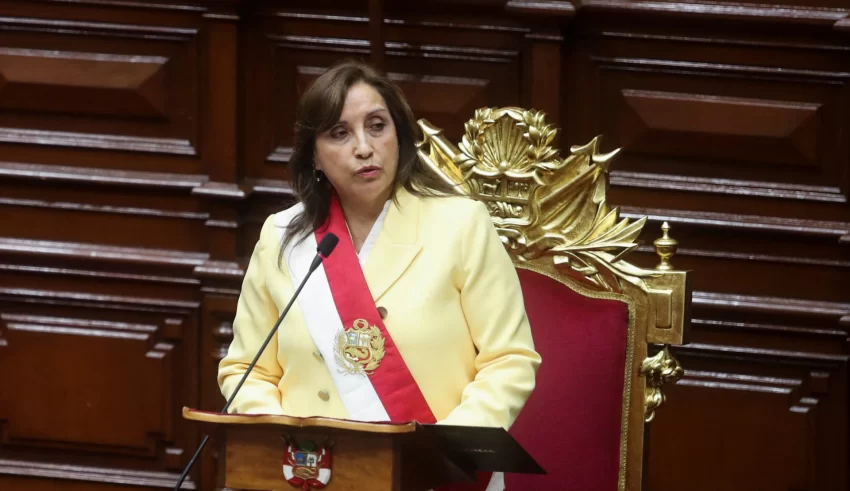
As Peru’s first female President is taking over control of the region post the dramatic impeachment of former President Pedro Castillo, the world has been looking on to Peru with uncertainty. President Castillo was impeached by the very Congress he tried to dissolve and replace with an ‘exceptional emergency government’. He had announced on National Television of his agenda to dissolve the opposition-controlled Congress and a new Congress with constituent powers would be created to draw up a new constitution, to the dismay of his party members and the international community alike. Pedro Castillo’s decision was nothing less than launching a coup d’etat, as criticised by the Constitutional Court of Peru. However, Congress held an emergency session resulting in the immediate impeachment. The events unravelling in Peru once again invoke the age-old question about the legality of a Coup d’état?
While President Castillo’s impeachment and the country’s recent political crisis are looked at as the ‘political turmoil in common in South America’, the hypocrisy in it is alarming. The UK had five prime ministers in just six years, and the former American President is under investigation for the January 6 Insurrection of the Capitol Building (not called a ‘coup’ for legal reasons, but the intention was not different). However, they are pointed out as isolated incidents. While the discrepancy invokes a much bigger debate, this article focuses on how the political and military coups have been dictating politics in recent years. Attempting to seize power is not a new concept. In fact, a similar move by President Alberto Fujimori 30 years ago in Peru was partially successful, with him reigning as a dictator for eight years (partially as he is serving jail time for human rights violations). Similar coups have formed around the globe, sometimes successful as well. The International community has been debating sanctions on Myanmar due to its prolonged history of coups.
The UN Charter views, under Article 1 (1) affirmed, should take effective measures to prevent and throw a threat to peace. UNSC calls upon States to refrain from recognising the overhauling authority and continue to recognise the exiled democratically elected government. Article 1 of the Montevideo Convention on the Rights and Duties of States places qualification to be a State; an established government often points to a democratically elected government, where the rule of law is enforced and respected. A Coup D’etat is the ultimate form of treason towards a democratic system, and the success stories of coups must be a warning of failing democratic values around the globe. The changes of coups against democratic governments are more successful than coups against dictatorships. The threat of a coup is more immediate and unpredictable than that of international armed conflict.
While counterbalancing the military could be a tactic to prevent a coup d’état, employing it internally is difficult without comprising the principle of sovereignty. But there are safeguards the International community can put in place to, if not stop, combat coups that threaten the democratic thread of nations. The European Union and the United States have placed sanctions on Myanmar, but the economic development and social progress of the country may not be on the priority list of players overthrowing a democratic government. While economic sanctions and denying its legitimacy are welcome steps, more needs to be done by the international community.
In 2019, the U.S. took a bi-partisan step to implement the Global Fragility Act to help prevent coups by coordinating and strengthening all efforts to counter the economic, social and justice problems that lead to coups d’état and to end violence and extremism. The law reflects on the probability that in a socially and economically just nation, a coup d’état is more unlikely. However, the law is not in force. When implemented, it could redirect funds and efforts into strengthening countries at risk. While the U.S. advocate the act as a product of its commitment to international cooperation, in reality, it is an effort to maintain global superpower status without sacrificing boots on the ground. This could be the first attempt to change the classic U.S. foreign policy of reacting to conflict by deploying troops at a substantial military expense. The U.S. is exploring the possibility of investing in its ability to prevent and mitigate violent conflict rather than fight it.
Another effort by the international community is to prevent other nations from profiting from coup d’états. The growing role of international actors in facilitating coups is concerning. Reports of Russia, the United States, and Germany having ties and training junta leaders in Western Africa had made the rounds. China has been accused of their support for autocrats and efforts to undermine democratic governments. The international community must condone making ‘weaker’ nations as political playgrounds to serve self-interest.
While a failure, Pedro Castillo’s attempted coup is a much-needed reminder of the possibility of coups in democratic nations even in 2022. Coups strike at the very foundation of democracy and constitutional order. The international community must combat any attempt to overhaul democratically elected governments and constitutional processes to stabilise international law and order.
By The European Institute for International Law and International Relations.












